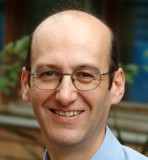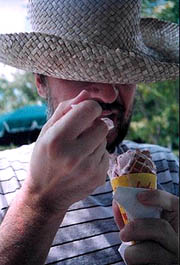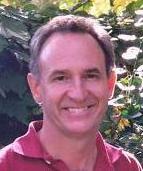We proudly announce these 3 invited keynote speakers (in alphabetical order):
|
Jon Garibaldi: Ensemble Fuzzy Reasoning

Fuzzy sets were introduced by Zadeh in the 1960s, and were subsequently expanded into a complete systematic framework for dealing with uncertainty. As part of the generic fuzzy methodologies, fuzzy inference systems were proposed for the modelling of human reasoning with uncertain data and knowledge. However, standard fuzzy sets and fuzzy reasoning do not model the variability in decision making that is typically exhibited by all human experts in any domain. Variation may occur among the decisions of a panel of human experts (inter-expert variability), as well as in the decisions of an individual expert over time (intra-expert variability). Dr Garibaldi has introduced the concept of non-stationary fuzzy sets, in which small changes (perturbations) are introduced in the membership functions associated with the linguistic terms of a fuzzy inference system. These small changes mean that each time a fuzzy inference system is run with the same data, a different result is obtained. It is straight-forward to extend this notion to create an ensemble fuzzy inference system featuring non-stationary fuzzy sets. In this talk (aimed at an audience not completely familiar with fuzzy methods), non-stationary fuzzy sets and reasoning will be explained in detail, and its use in several real-world scenarios of decision support in medical contexts will be described. Results will be presented to demonstrate the benefits of non-stationary fuzzy reasoning. Jon Garibaldi
Dr Jon Garibaldi received the BSc (Hons) degree in Physics from Bristol University, UK, in 1984 and the MSc and PhD degree from the University of Plymouth, UK, in 1990 and 1997, respectively. He is currently an Associate Professor and Reader within the Intelligent Modelling and Analysis (IMA) Research Group in the School of Computer Science at the University of Nottingham, U.K. Dr Garibaldi has published over 120 papers on fuzzy expert systems and fuzzy modelling, including six book chapters, and has edited two books. His main research interests are modelling uncertainty in human reasoning and especially in modelling the variation in normal human decision making, particularly in medical domains. He has created and implemented fuzzy expert systems, and developed methods for fuzzy model optimisation. His email is jmg@cs.nott.ac.uk and his personal webpage is at http://ima.ac.uk/garibaldi. |
|
Zbigniew Michalewicz: Some Thoughts on Wine Production

In the modern information era, managers (e.g. winemakers) recognize the competitive opportunities represented by decision-support tools which can provide a significant cost savings & revenue increases for their businesses. Wineries make daily decisions on the processing of grapes, from harvest time (prediction of maturity of grapes, scheduling of equipment and labour, capacity planning, scheduling of crushers) through tank farm activities (planning and scheduling of wine and juice transfers on the tank farm) to packaging processes (bottling and storage activities). As such operation is quite complex, the whole area is loaded with interesting OR-related issues. These include the issues of global vs. local optimization, relationship between prediction and optimization, operating in dynamic environments, strategic vs. tactical optimization, and multi-objective optimization & trade-off analysis. During the talk we address the above issues; a few real-world applications will be shown and discussed to emphasize some of the presented material. Zbigniew Michalewicz
Zbigniew Michalewicz is a Professor in School of Computer Science at the University of Adelaide. He completed his Masters degree at the Technical University of Warsaw in 1974, Ph.D. and D.Sc. degrees at the Institute of Computer Science, Polish Academy of Sciences, in 1981 and 1997, respectively. In 2002 he was conferred the Title of National Professor by the President of Poland. He also holds Professor positions at the Institute of Computer Science, Polish Academy of Sciences, the Polish-Japanese Institute of Information Technology, and the State Key Laboratory of Software Engineering of Wuhan University, China. He is associated with the Structural Complexity Laboratory at Seoul National University, South Korea. Zbigniew Michalewicz has published over 200 articles and 15 books; these include a monograph Genetic Algorithms + Data Structures = Evolution Programs, How to Solve It: Modern Heuristics, and Handbook of Evolutionary Computation. Recently (2007-2008) he published three books on three different topics: Adaptive Business Intelligence on building intelligent software, Winning Credibility: A guide for building a business from rags to riches - on building a successful company, and Puzzle-Based Learning: An Introduction to critical thinking, mathematics, and problem-solving - on a new teaching methodology. Zbigniew Michalewicz has over 30 years of academic and industry experience. He has led numerous data mining and optimisation projects for major corporations such as General Motors, Ford Motor Company, Bank of America, Wells Fargo, Dentsu, ABB Grain, Orlando Wines, Rio Tinto, and for several government agencies. His scientific and business achievements have been recognized by countless publications, including TIME Magazine, Newsweek, New York Times, Forbes, and the Associated Press among others. He serves as Chairman of the Board for SolveIT Software Pty Ltd, a company specialising in custom software solutions for demand forecasting and scheduling and supply chain optimisation. Zbigniew Michalewicz is a Fellow of the Australian Computer Society. In 2006 he was appointed a Business Ambassador for the State of South Australia. More information can be found at http://www.cs.adelaide.edu.au/~zbyszek |
|
Darrell Whitley: Elementary Landscapes made Easy

Several NP-Hard problems (as well as some problems in the complexity class P) can be expressed as search graphs that are elementary landscapes. This makes it possible to compute a number of surprising properties about the search space and the neighborhoods that induce the elementary landscape. The Traveling Salesman Problem and Graph Coloring as well as several graph partitioning problems all have elementary landscapes. ONEMAX also has an elementary landscape under Hamming neighborhoods. In this talk we will explore four topics. 1) We show that MAX-3SAT and NK-landscapes are a superposition of a polynomial number of elementary landscapes. 2) We generalize the notion of neighborhood to compute properties over neighbors that are distance d (or less) away from a given point (e.g., Hamming spheres and Hamming balls for bit representations). 3) We show how powerful recombination operators can also be developed that exploit some of the special properties of functions that display elementary landscapes. 4) Finally, we will ask what these results might suggest about the complexity classes P verse NP. Darrell Whitley
Darrell Whitley is Professor and Chair of the Computer Science Department at Colorado State University. He received his Ph.D. in Anthropology and M.S. in Computer Science from Southern Illinois University in 1985 and 1986. He served as Chair of the Governing Board of the International Society for Genetic Algorithms from 1993 to 1997, as Editor-In-Chief of Evolutionary Computation from 1997 to 2002, and currently serves as Chair of ACM SIGEVO. He has published more than 180 papers and has a citation H-Index of 45. More information can be found at http://www.cs.colostate.edu/~whitley/ |



